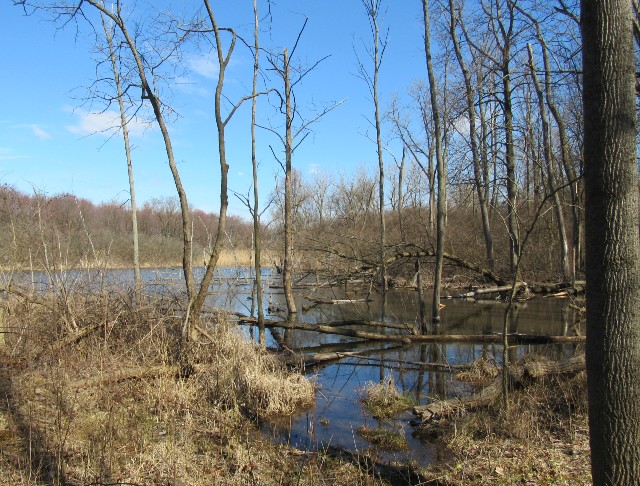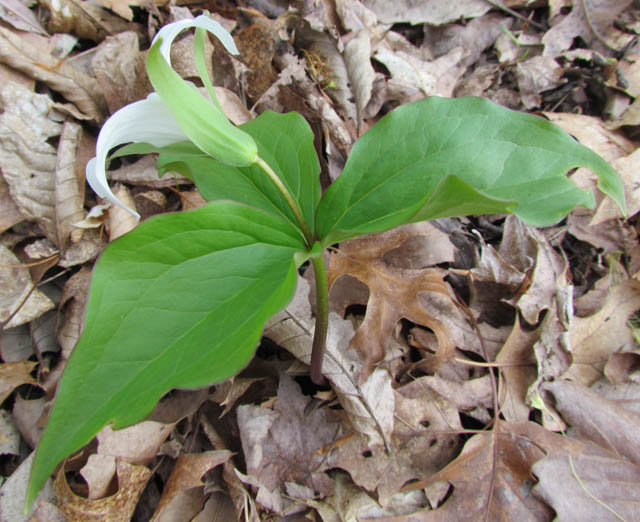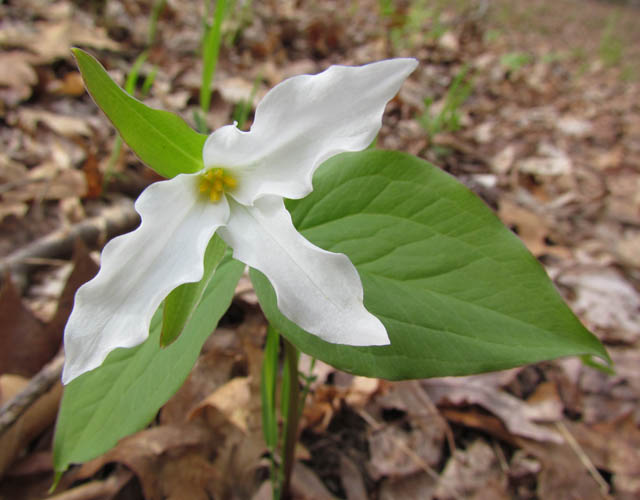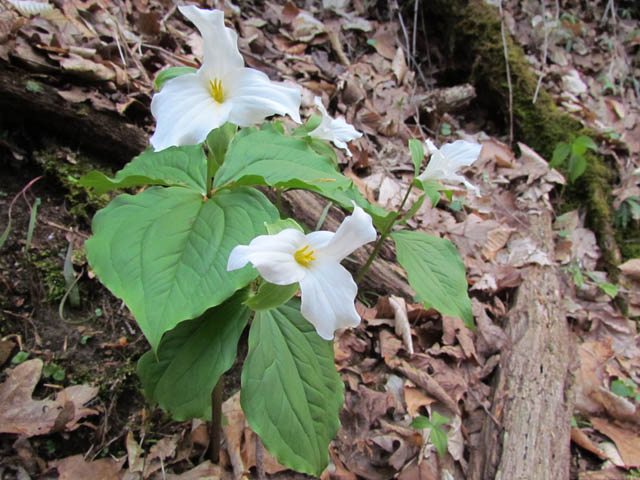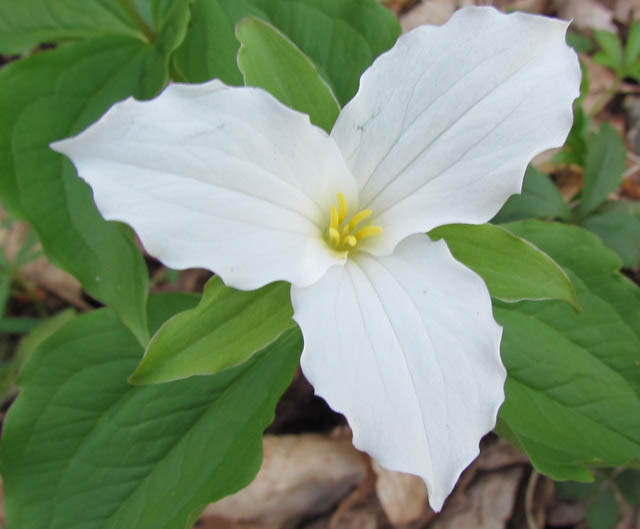Trillium is also a much-loved native wildflower in the United States. Its presence above ground is just for a short time each year – after the snow melts, but before the woodland trees leaf out and completely shade the forest floor.
The name “trillium” derives from the plant’s repetitions of three. Each plant produces a whorl of three broad leaves with a three-petaled blossom on a single stem.
Like many other Spring wildflowers, the seeds of the trillium are dispersed by ants. The plant’s seeds contain a food that is attractive to ants. The ants carry the seeds to their nests to feed their larvae, then discard the undamaged seeds. This allows the trillium to produce new plants in nearby locations.
This plant has a lifespan approaching that of a human – it requires some 17 years to reach maturity and may reach 70 years of age.
In 1986, Great White Trillium took its place alongside the Ohio state flower, Red Carnation, as the state’s official wildflower. Ohio’s General Assembly chose this plant because it grows in each of the state’s 88 counties.

